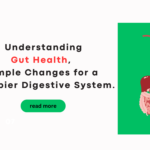Feelings and physical health are complexly linked, affecting each other deeply. Our emotional state can significantly impact our body functions and overall well-being. Positive emotions are similar to happiness and satisfaction associated with better health issues, including a stronger immune system and better cardiovascular function. Negative feelings identical to stress, anxiety, and depression can spark dangerous physical responses, similar to increased inflammation and increased cortisol levels, understanding the link that contributes to habitual health problems and effectively managing feelings to support both internal and physical health.
The Importance of finding the connection between emotions and physical health for overall well-being.
Understanding the relationship between feelings and physical health. feelings play an important part in impacting bodily functions to maintain overall well-being, and their influence goes beyond the additional feelings to affect physical health issues. Individuals manage their emotional health more effectively by recognizing how emotional states can impact factors like immune function, cardiovascular health, and stress situations. This mindfulness helps habitual health conditions and promotes a holistic approach to well-being, integrating internal and physical health for a more balanced and healthier life.
How can good and bad emotions influence the body of a man?
Positive and negative feelings profoundly affect the body in different ways. Positive feelings like happiness and gratefulness can boost immune function, lower blood pressure, and overall cardiovascular health by releasing sense-good hormones like endorphins and serotonin. On the other hand, negative feelings, like stress, wrathfulness, sadness, and dangerous physical connections can spark responses, including increased production of stress hormones similar to cortisol, blood pressure, and high inflammation levels. These negative goods can compromise vulnerable functions and contribute to several health issues, effectively promoting positive emotional experiences and negative feelings for optimal physical health.
How chronic stress and negative emotions weaken the immune system.
Habitual stress and negative feelings can significantly weaken the immune system, and drag stress compromises the body’s capability to shield off conditions, triggering the body’s “ fight to flight ” response and leading to the nonstop release of stress hormones similar to cortisol. High cortisol situations can suppress the product and function of immune cells, including lymphocytes, which, in addition to fighting infection, can disrupt the balance of the habitual stress inflammatory response, causing the body to have further patient anxiety about inflammatory conditions and negative feelings similar as depression further complicate this effect by contributing to ongoing physical stress, therefore reducing the effectiveness of the immune system and adding the threat of both acute and habitual health conditions.
Some diseases are caused by chronic stress.
Chronic stress is linked to several conditions due to persistent effects on the body’s physiological systems. cardiovascular conditions are the most important, as long-term stress can increase the threat of high blood pressure, heart complaints, and stroke. Gastrointestinal diseases similar to irritable bowel syndrome( IBS) and ulcers are also common, as stress affects bowel movements and increases inflammation. Diabetes can be aggravated by stress causing hormonal imbalances that blood sugar. Similarly, habitual stress can weaken the immune system, making the body more susceptible to infections and contributing to autoimmune conditions where the body miscalculations these conditions punctuate the wide and severe goods that sustained stress can have on overall health.
Role of hormones in physical health.
Hormones play an important role in maintaining physical health by acting as chemical messengers that support a wide range of body functions produced by the endocrine glands, such as cortisol, insulin, and thyroid hormones, respectively. regulate blood sugar levels and balance normal physiological processes, such as growth, energy production, and reproductive health. Disruption of hormonal conditions, whether due to stress, illness, or lifestyle factors, can lead to major health problems such as diabetes, thyroid diseases, and cardiovascular problems. Therefore, proper hormonal balance is essential for overall health and effective body function.
Strategies for managing emotions to protect physical health.
Cognitive-behavioral therapy (CBT):
Identification of negative studies Helps to recognize and challenge dangerous study patterns that contribute to negative feelings.
Behavioral strategies like healthy behavior to manage stress and improve emotional regulation.
Things setting help to set attainable pretensions to improve emotional well-being and overall internal health.
Mindfulness and Meditation Practices:
Mindfulness-based stress reduction ways increase mindfulness and acceptance of the present moment, which helps in reducing stress.
Regular exercise and contemplation can increase emotional regulation, reduce anxiety, and improve overall health.
Breathing exercises help to calm the nervous system and manage acute stress responses.
Emotional regulation techniques:
Emotion focused remedy helps individuals understand and reuse their feelings healthily. Self compassion styles of kindness and understanding with yourself during emotional torture.
Medical consultation:
For severe emotional issues, a cerebral evaluation may be necessary to explore treatment options, including medication. To integrate internal health care with physical health care for a holistic approach.
Impact of social support and relationships on emotional well-being.
Social support and connections contribute to emotional well-being by furnishing a buffer against stress and promoting a sense of belonging and security. Positive connections with family, friends, and community can increase adaptability, offering emotional confirmation and practical support in grueling times. This support not only helps reduce the effects of stress but also promotes psychological health by adding passions of self-worth and reducing passions of loneliness. Engaging in meaningful social relations can elevate mood, improve managing mechanisms, and contribute to a more balanced emotional state, eventually leading to better overall health.
Repetition of the significance of understanding the connection between feelings and physical health.
Understanding the relationship between feelings and physical health promotes overall well-being and life feelings through mechanisms similar to stress response, immune system, cardiovascular health habitual negative feelings brain structures, cognitive function, and emotional regulation. Recognizing and paying attention to this interplay that leads to dangerous effects on, preventative measures and operation effectiveness to maintain both emotional and physical health. This comprehensive approach not only improves the quality of life but also increases adaptability against conditions, making it comprehensive self-care and professional support.



